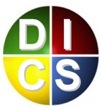Category: Coaching Tools
How do you develop the heart of a coach?
One of my favorite books on coaching is Leadership Coaching by Tony Stoltzfus and we list several of his books on our resource page. I believe that developing the heart of a coach is THE core competency of a Christian Life Coach, and this is the foundation upon which we build all other coaching competencies.
-
 DISC Personality and Relationships
DISC Personality and Relationships DISC personality profiles can be very effective tools in helping to build stronger relationships. In fact, the DISC personality profile is used by many counselors and coaches in helping couples improve their relationships by understanding how they handle conflict, recognize each others’ “hot buttons” and help us understand each others’ “sensitive spots.”
DISC Personality and Conflict
DISC personality “D” type (Do-er, Dominant, Decisive) can be hard headed and difficult and will be fine as long as things are done their way. A “D” personality deals with conflict head on, and has no problem with conflict, standing up against anyone who seems to resist them or their strong beliefs. The “D” personality seeks to “Get it right” and to get results, is task-oriented more than people oriented, and their biggest fear is not getting it done.. failure. In a relationship, the “D” personality needs to be insensitive to people’s feelings and to focus on task.
DISC personality “I” type (Inspiring and Influencing) can talk their way out of almost anything as these personalities are great at influencing or inspiring others with their charm and charisma. “I” personalities seek to “Get recognized and appreciated” for their ideas, and want to share ideas and to be heard. The “I” personality is people-oriented more than task-oriented and needs to pay more attention to details and also need to focus on the task at hand. This person can be “all over the page” and may have a hard time getting focused to complete a task.
DISC personality “S” types (Steadiness, Security minded) need to understand “why” change has to occur before being thrust into change. This person is loyal, and likes to plan events as opposed to the “D” and the “I” who are more spontaneous. The “S” personality seeks “Get Harmony and Peace”, and tends to be more agreeable. Although the “S” personality may give in to pressures from “I” and “D” personality, be careful because this personality will “stew” ab0ut giving in and circle back to talk about it again.
DISC personality “C” (Compliant, Cautious, Careful) is seldom wrong because they research, and at times can over-analyze which may be perceived as being critical. The “C” personality seeks to “Get it right” and they ask alot of questions. This personality is task-oriented and although reserved in their demeanor, they can be relentless when it comes to research and getting all the facts before making a decision.
Isn’t it interesting that the very differences that attracted us to someone can become the very traits we end up resenting, and become the “hot buttons” in a relationship? When we seek first to understand our own behavior, and how we react in stressful situations and how we respond to conflict, then we can begin to appreciate the differences in others, and adapt our behavior to create more open and respectful communication.
What can you do to work through the rough spots in a relationship when each of the 4 profiles have different “motivators”? “Get it done” or “Get recognized”, “Get harmony” or finally “Get it Right”?
-
 Our last profile to look at through the lens of the DiSC profile is our “C” – “Compliance” (Melancholy or Beaver).
Our last profile to look at through the lens of the DiSC profile is our “C” – “Compliance” (Melancholy or Beaver). As a coach who is a high “C”, you are reserved and more task-oriented than people oriented and you like structure around your coaching sessions so the call prep form and clients who show up on time are important to you. Unlike the “D” and “I” who are fast paced in their walk and talk, you are more reserved and you speak and move at a slower pace. Because of your more relaxed state, people are relaxed around you and find it easy to talk to you. As a coach, you want to avoid getting bogged down in logistics. Since your goal is “get it right,” keep in mind that the client must be allowed to dream big, which is sometimes hard for a high “C” personality because you worry about getting it “right.” Once they identify the goal, and where they want to be, “C’s” are very good at helping to put a plan in place for their client’s success. And remember the importance of endorsing your client, and encouraging them to think creatively; you will learn from them.
How do you coach a client who is high “C?” The “Compliance” appreciates structure so they will like an organized approach to the sessions and like to use a pre-call coaching form. Allow them time to collect their data and facts to bring to the session. The “C” personality is tenacious, working hard to complete the task and has a tendency to get bogged down in details. This is where a coach can help because as a coach, you can help them to expand their vision to see the bigger picture and encourage them to think out of the box. The “C” is a wealth of information. Remember, these are the data collectors and they have a lot stored! Tap into their data bank and draw out creative ideas… they have them! There is resistance to trying new ideas until they have all the data and sometimes may not know when to stop gathering data and start an action plan. The “C’s” goal is to get it right and they fear making a mistake. A good questions to ask a “C” may be “What key information is critical to understand before making a decision?” You may help them avoid getting too bogged down in details that may not be important to the decision. And then, work with them to have a good support structure to help them be successful.
If you are a coach, a leader, a Human Resource professional, counselor or of any other profession seeking greater understanding into human behavior, learn more about our DISC Training and Certification Course
-
 On 2 previous posts, we discussed how a coach can use the DiSC Assessment as a tool for building rapport with clients, and how to apply this knowledge to improve coaching effectiveness. Let’s look now at the “S” – “Steadiness” (Phlegmatic, or the Golden Retriever).
On 2 previous posts, we discussed how a coach can use the DiSC Assessment as a tool for building rapport with clients, and how to apply this knowledge to improve coaching effectiveness. Let’s look now at the “S” – “Steadiness” (Phlegmatic, or the Golden Retriever).As a coach, and a high “S” on the DiSC profile (“Steady”), you are very interested in people, and a great listener; some may even tell you that you “really get where they are coming from.” Since you value experience, you usually advance in your coaching niche. You are reserved, relaxed and do not exhibit a lot of the high and low emotions that we tend to see in our “D” and “I” personalities. It is easy for you to “Champion” your client and people gravitate to you because you have a calm and open demeanor. You may need to focus on holding your client accountable and give more than a nudge to them. Be willing to draw boundaries with clients to avoid allowing them off the hook. And, as an “S” you don’t like surprises so the pre-call coaching form is a must for you.
How do you coach someone who is an “S”? They will most likely be somewhat resistant to change, so they may need your encouragement to take action at first. Help them to set goals and a clear action plan. And an “S” client values your opinion so be careful when they ask for advice. Help them understand the importance of getting things done (tasks) while helping them balance relationships and if you can help them see where others will benefit, it is easier for them to take action. Our “S” clients like harmony and are not comfortable with confrontation and they like structure. Although they don’t like to control others, they do not like to be controlled nor surprised.
In a future post, we will look at the “C” – the Compliant (Melancholy…the Beaver)
Learn more about our DISC Training and Certification Course